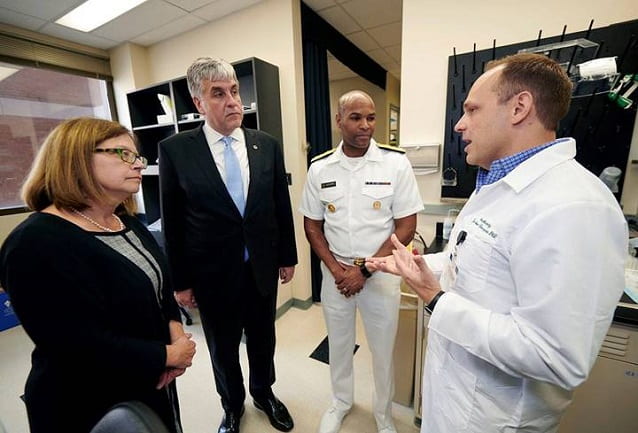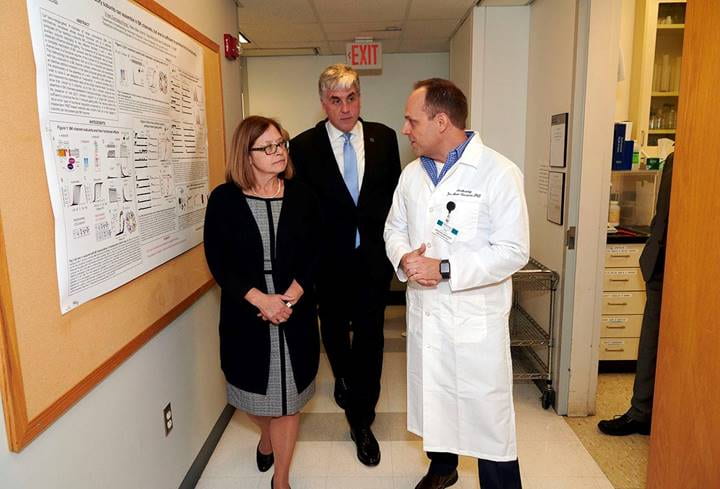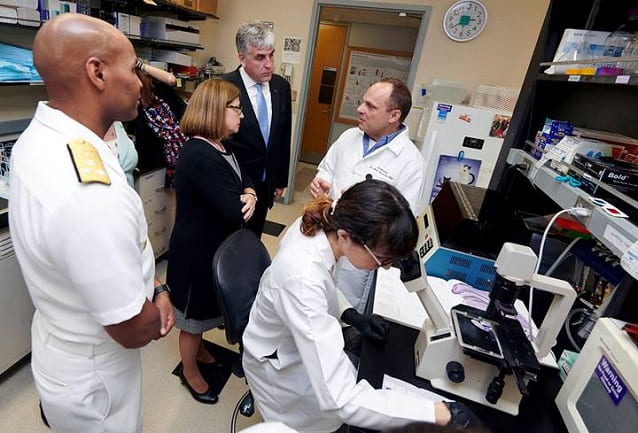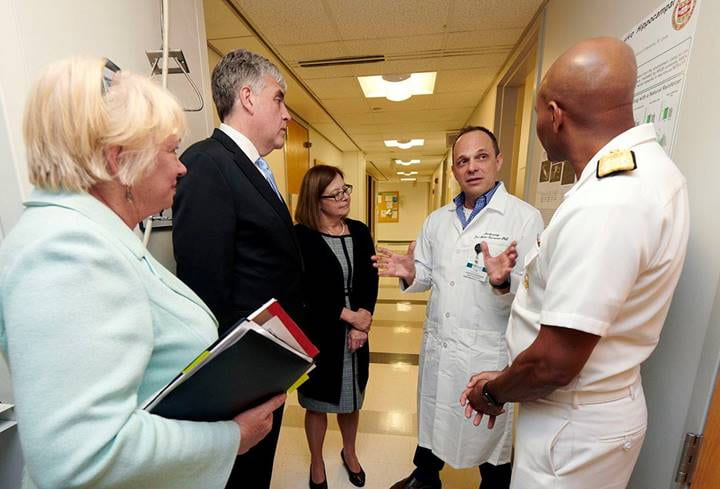
Leaders from the U.S. Department of Health and Human Services (HHS) visited the Washington University Medical Campus Sept. 20 to hear about strategies to address the opioid crisis, which has claimed the lives of more than 200,000 people in the United States since 1999. Eric D. Hargan, HHS deputy, led a roundtable discussion, accompanied by U.S. Surgeon General Jerome M. Adams, MD (who is also an anesthesiologist) and Elinore F. McCance-Katz, MD, PhD, assistant secretary for mental health and substance use.
A number of researchers at the School of Medicine are focused on understanding opioid addiction and chronic pain. The HHS leaders toured the laboratory of one of those researchers, Jose Moron-Concepcion, PhD, associate professor of anesthesiology. His work focuses on understanding how opioids affect the brain. He and his colleagues have found that long-term opioid use seems to flip a switch in the brain that triggers cravings for months after drug use stops — an experience that can contribute to relapse. His research could lead to more effective ways to fight addiction.
“There are certain areas of the brain that respond to the repeated use of opioids,” Moron-Concepcion said. “If there was a way to break that cycle between opioid use and cravings, we may be able to help drug users and prevent relapse.”
During their visit to the Medical Campus, Hargan and Adams also met with David H. Perlmutter, MD, the George and Carol Bauer Dean of the School of Medicine, and the Spencer T. and Ann W. Olin Distinguished Professor and executive vice chancellor for medical affairs; Jennifer K. Lodge, PhD, vice chancellor for research; John P. Lynch, MD, professor of medicine and vice president and chief medical officer at Barnes-Jewish Hospital; and Richard J. Leikweg, BJC HealthCare president and chief executive officer. They discussed the roots of the opioid crisis and research underway at the School of Medicine to develop alternatives to opioids for treating patients with chronic pain. They also discussed ways to promote cooperation among healthcare providers in the St. Louis region to address addiction and mental health issues in opioid users.
“As many people know, this issue is personal for me,” said Surgeon General Adams. “I have a brother who currently is in prison because of his addiction. The number of overdose deaths is daunting — someone in the U.S. dies from opioids every 11 minutes — but we’re beginning to make progress. And by bringing together the people with the expertise to fight the problem, we think we can do better. We have to do better.”


